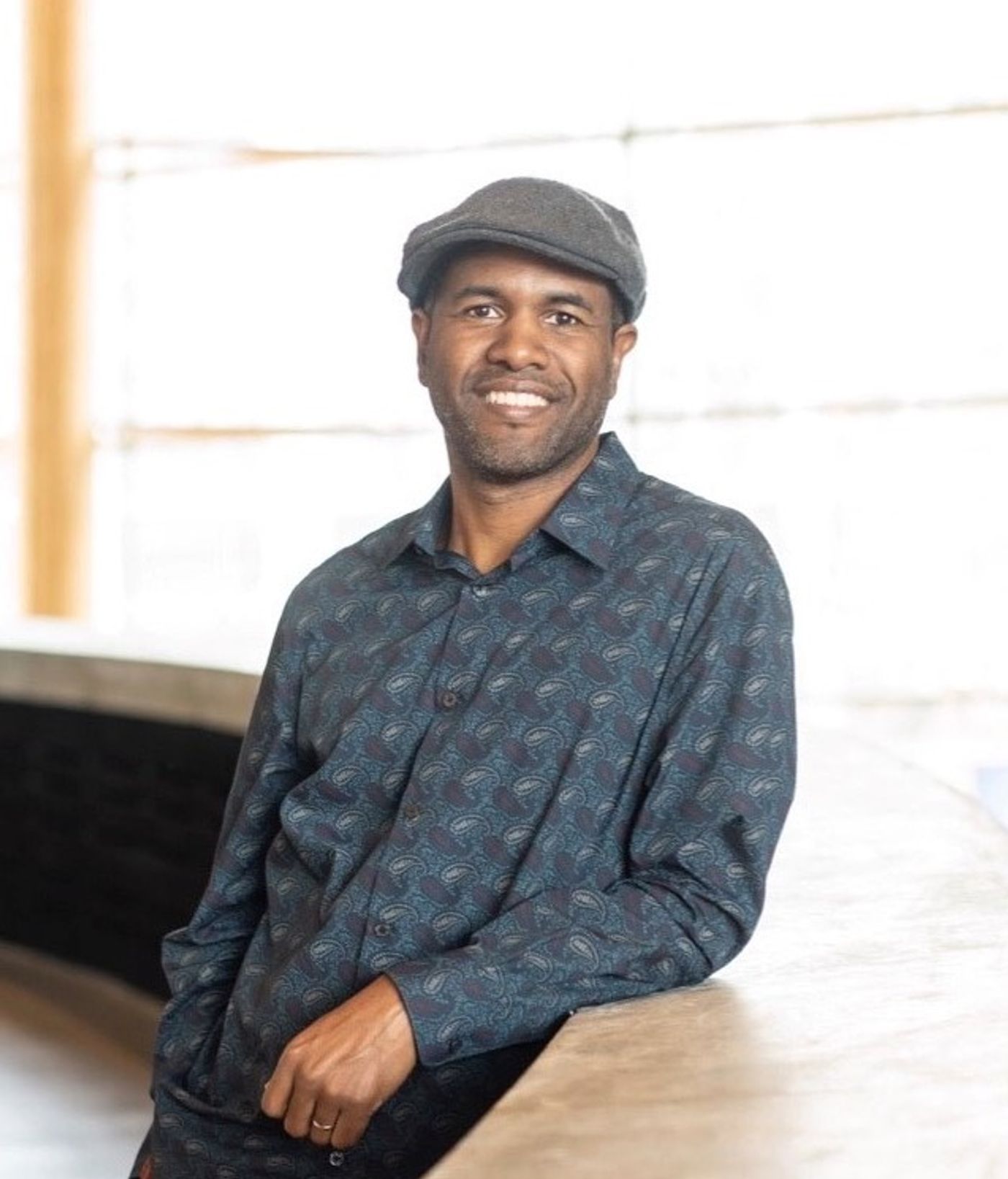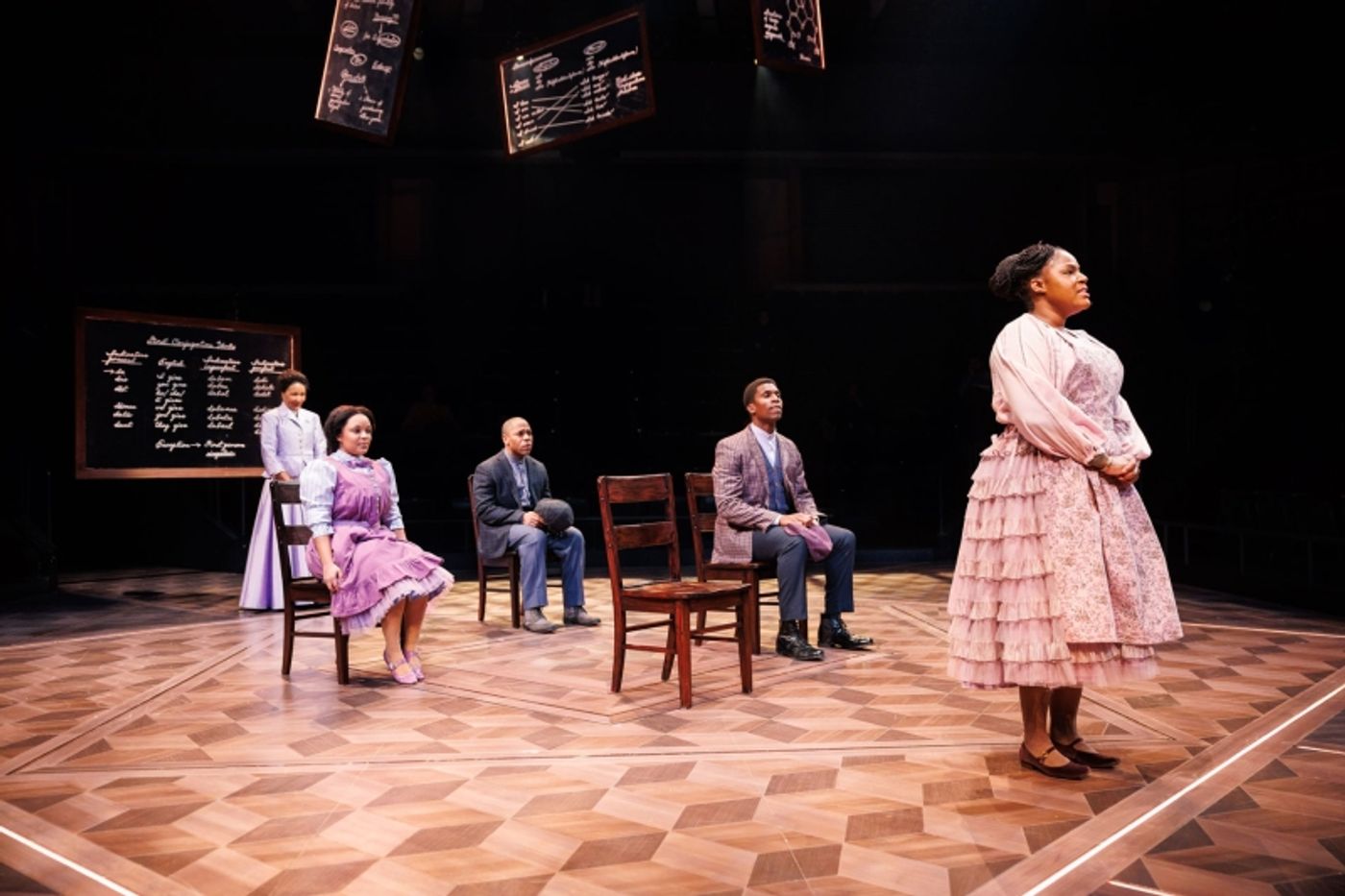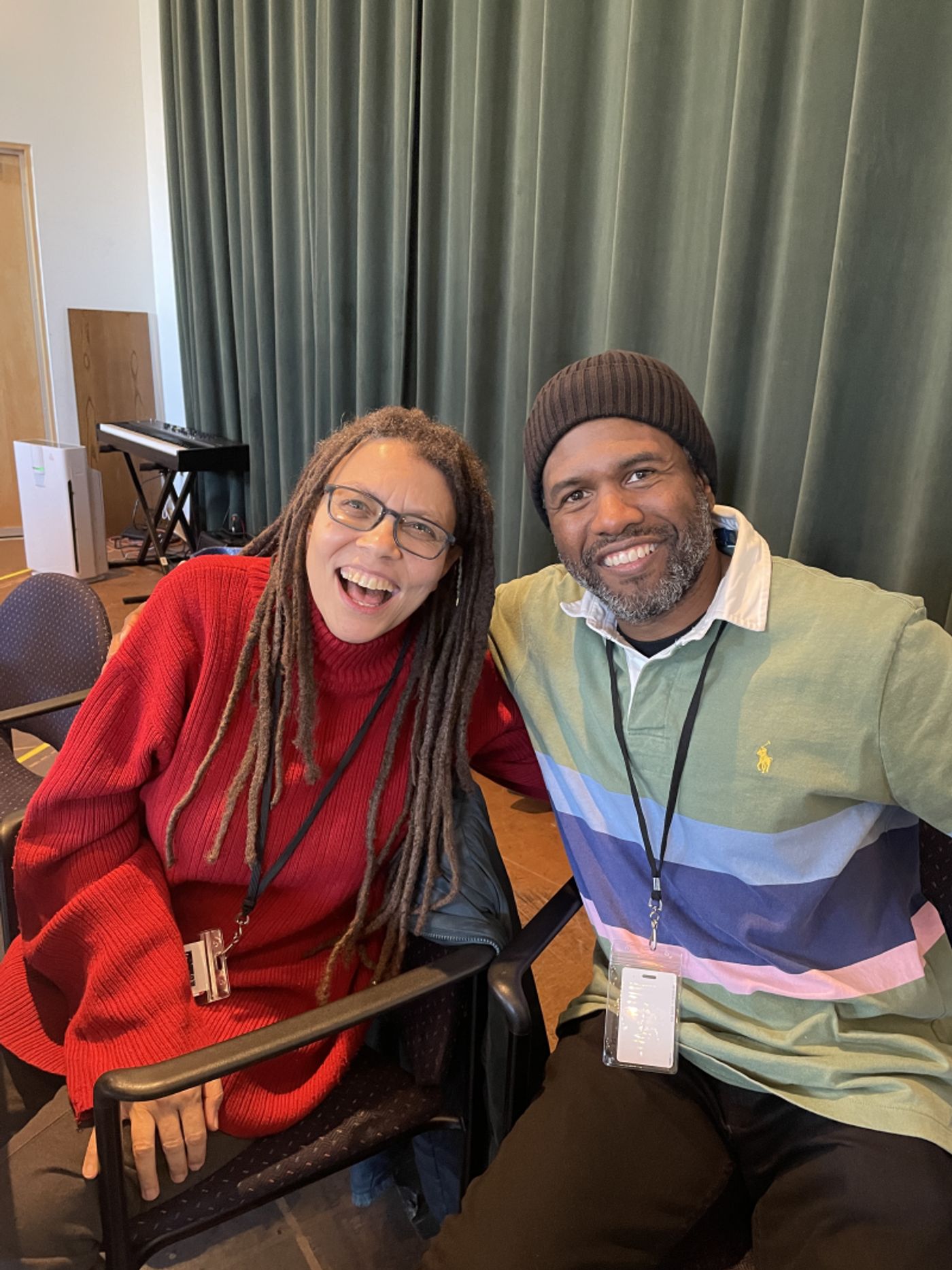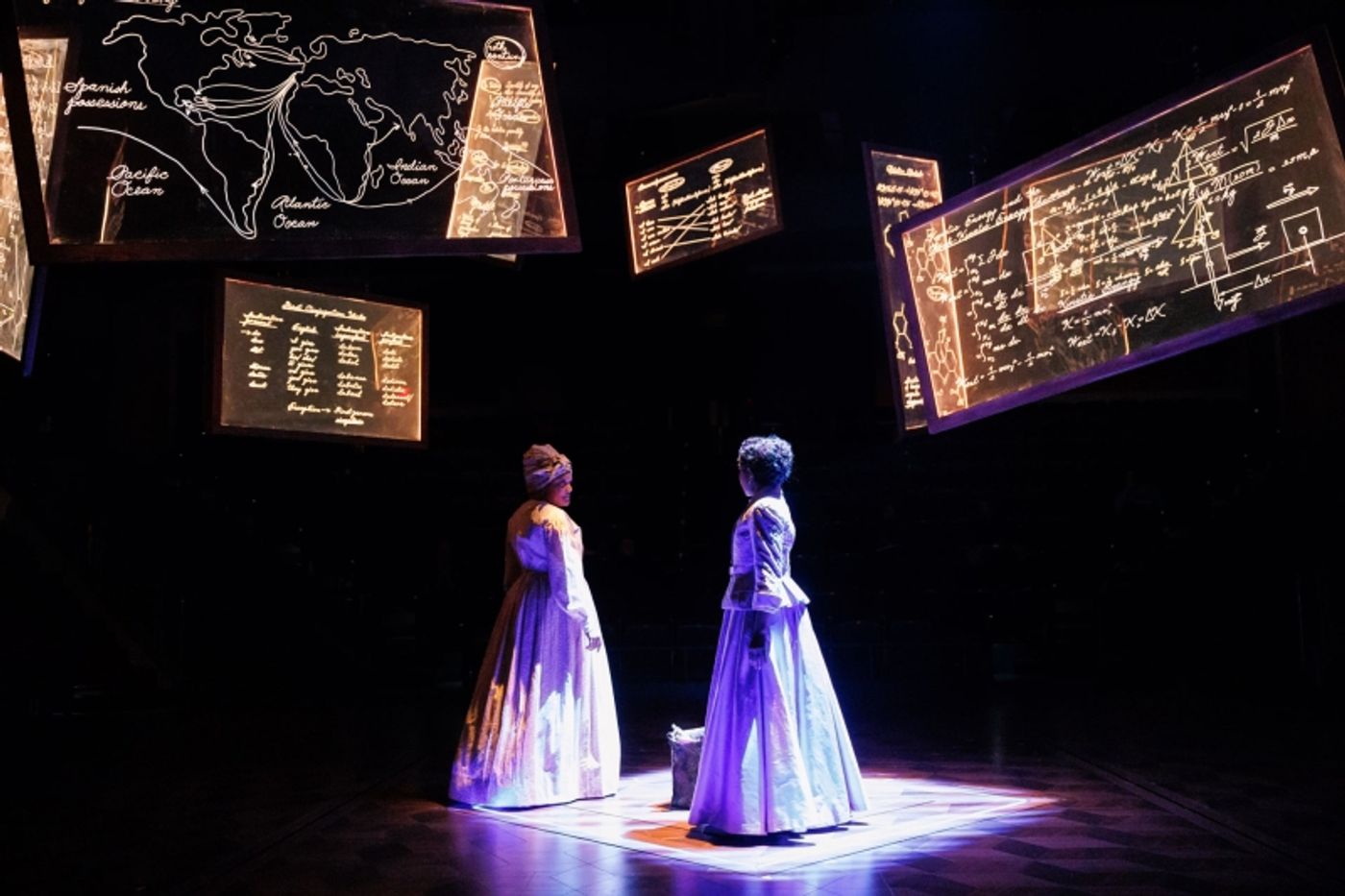Interview: Theatre Life with Psalmayene 24
The all around brilliant DC area artist on his latest work for Arena Stage and more.

Today’s subject Psalmayene 24 is someone we can aptly classify as the whole package when we talk about artists in the DC theatre community. He is an accomplished writer/actor/performer and educator whose work has been enjoyed by audiences of all ages over the years. Currently Psalmayene 24 is the director of Arena Stage’s current Power Play entitled Tempestuous Elements. The show is currently playing in the company’s Fichandler space through March 17th.
Psalm’s (Yes, we can call him that for short) work as a director includes many productions at some of the area’s finest theatres. He recently directed the World Premiere of Good Bones at Studio Theatre where he had previously staged Flow and Pass Over. Other directing credits include Necessary Sacrifices: A Radio Play at Ford’s Theatre, Native Son at Mosaic Theater Company and Word Becomes Flesh at Theater Alliance. The latter won Psalm a Helen Hayes Award for Outstanding Direction of a Play.
Psalm’s prolific playwriting credits include Monumental Travesties, Dear Mapel, and Les Deux Noirs for Mosaic Theater Company and Out of the Vineyard which was performed at Joe’s Movement Emporium.
If you have young theatregoers in your household, you might have seen Psalm’s work both on and off stage at Imagination Stage in the form of his Hip-Hop Trilogy. He wrote and directed all three of these productions while performing the title role in one of the plays as well. That would be P.Nokio.
His other acting credits include Ruined, Cuttin’ Up, and Anthems at Arena Stage Dear Mapel at Mosaic Theater Company and HBO’s The Wire.
During the pandemic he wrote and directed Arena Stage’s short film The Freewheelin’ Insurgents.
For many years Psalm was the Master Teaching Artist at Arena Stage and is currently the Andrew W. Mellon Foundation Playwright in Residence at Mosaic Theater Company.
It doesn’t matter if you know today’s artist as Psalmayene 24, Psalm, or Greg Morrison because no matter what the name, the artistry is astounding. Grab some seats to a world premiere play at Arena Stage that follows my mantra that theatre is meant to educate as well as entertain. Tempestuous Elements definitely fits the criteria for that.
Psalmayene 24 is one of the best examples of someone living his theatre life to the fullest. We in this rich and vibrant theatre community are indeed lucky to have his presence among us.
Those of us in the DC theatre community know you as a triple threat artist (writer/director/performer). When your theatrical journey began, which came first and how did the other two come into play?
My first love was actually dance. That’s the first artform I remember doing. My earliest memories include dancing at family parties when I was about four or five years old. That love for dance somehow morphed into a love for acting. I did school performances and plays in elementary school, junior high school and high school. When I became a professional actor, I was confronted with the dearth of quality roles for young Black men. Instead of wasting precious time and energy complaining, I started writing plays. Playwriting was initially a means of manifesting my own opportunities, but it quickly turned into a way of creating opportunities for people in my various communities. Directing was an organic result of my playwriting. I was commissioned by Imagination Stage to write a play—Zomo the Rabbit: A Hip-Hop Creation Myth—and the artistic director, Janet Stanford, asked me to direct it. I said yes and became a director.
Did you go to school for theatre? If yes, where did you receive your training?
I went to Howard University. I started out as a film production major, then switched to dance and left as an acting major before starting my career in theatre. But a good deal of my training came when I was an actor with the now defunct Living Stage Theatre Company. Living Stage was an initiative of Arena Stage and basically functioned as its own de facto theater company. A staff of full-time actors received conservatory-style training that was rooted in improvisational-based acting methods and theatre for social change. We created short plays that we did for school and community groups. That work was grounded in the egalitarian notion that all people are artists at heart. That ethos still informs my work today.
What was your first professional job in the theatre?
My first professional acting job was a tour of Pinocchio that I did with a children’s theatre company in Richmond, Virginia. I had three roles in the play: Master Cherry, the old woodcutter who possessed the magical log that Pinocchio was carved out of; Harlequin, a marionette; and Fox, one of the villains. That gig was a disastrous adventure. I tell the full story in my play, Dear Mapel, but that was one of the experiences that was the impetus for my playwriting career.
Can you please tell the origins of your name?
My name is an attempt to escape the confines of reality. It represents an effort to jolt us out of the mundane, humdrum rhythm of our everyday existence. Ultimately, it’s a device that provides an opportunity—however brief—to connect with other people. I created the name in my early 20s when I was immersed in a community of musicians, songwriters, poets, rappers, and alternative thinkers who made up a vibrant creative scene in DC. This was in the mid-90s when I was doing music and was part of a band. For a while I used to just go by “24”. Then, after entering an altered state of consciousness that didn’t involve drugs, I added “Psalmayene” to the equation.

in Arena Stage's production of Tempestuous Elements.
Photo by Kian McKellar.
Can you please give us a brief overview of Tempestuous Elements?
Tempestuous Elements uplifts the remarkable, if little known, legacy of Anna Julia Cooper. Anna J. Cooper is known as the “mother of Black feminism” and she was a teacher, writer, orator, feminist, intellectual, playwright, poet, activist, and so much more. The play centers on her tumultuous years as principal of the all-Black M Street High School in the early 1900s when she battled forces that wanted to change the classical curriculum at the school to a curriculum focused on vocational studies. The play also deals with gossip surrounding her personal life and how it factors into the turbulence Anna experienced during those years.

current prodcution of Tempestuous Elements.
Photo courtesy of the artist.
When you were first given the script for Tempestuous Elements what stood out to you in the writing that made you say yes to directing the project?
It all starts with the playwright, Kia Corthron. Kia is an extraordinary and extremely well-regarded writer, so honestly, I would have probably agreed to direct the play sight unseen. But the power of the script lived up to Kia’s reputation as one of our most brilliant playwrights. She has a knack for writing language that really sings in the theater. Her writing just works on stage. Aside from the rich language of the play, the subject matter is right up my alley. I love working on projects that shed light on the Black experience through content and/or form. I sheepishly admit to not knowing about Anna Julia Cooper until I read Kia’s play. I’m thrilled that many other people who don’t know about Anna Julia Cooper will be introduced to this phenomenal woman through this play.
Can you please talk about how your Hip-Hop Trilogy of plays came to be at Imagination Stage?
As mentioned, Imagination Stage commissioned me to write Zomo the Rabbit: A Hip-Hop Creation Myth. That play tells the fictionalized origin story of hip-hop culture and features a trickster character from African folklore, a rabbit named Zomo. During rehearsals for the world premiere production of Zomo, I was thinking about how to continue exploring hip-hop culture through theatre for young audiences and that’s when the idea to examine the past, present, and future of hip-hop through a Hip-Hop Children’s Trilogy came to me. Zomo is about the past of hip-hop, P.Nokio: A Hip-Hop Musical is about the present, and Cinderella: The Remix is about the future. I shared the idea of a trilogy with Janet Stanford and Kate Bryer, Associate Artistic Director of Imagination Stage, and they were both excited about the idea. That’s basically how the Hip-Hop Children’s Trilogy was born.
Do you have a preference as to which discipline in the performing arts you enjoy the most?
Whichever discipline I’m doing at the time tends to be the discipline I enjoy doing the most. This gets tricky when projects overlap and I’m writing one or more projects while being in pre-production or rehearsals for another project. I find each discipline equally gratifying in its own unique way. Early on in my career, the answer would have been performing hands down. These days I get an equivalent kick out of being at home, lounging on the couch cracking jokes with my wife, and knowing that there is a project I directed or wrote that is (hopefully) enthralling people somewhere at the same moment.

Tempestuous Elements.
Photo by Kian McKellar.
What would you like audiences to take away with them after viewing Tempestuous Elements?
More than anything, I want all audience members—of all races, genders, and persuasions—to see themselves in Anna Julia Cooper. While Anna was a Black woman who wrote and spoke in startlingly incandescent terms about what it was like to be both Black and a woman during her lifetime, the trials and triumphs of her life have something important to say about the human condition. I hope audiences connect with her integrity, her resilience, and her unwavering belief in the ability of education to empower all people.
What advice can you give to a recent college graduate that is pursuing a career in the theatre.
Generate your own material. Don’t wait for people to give you opportunities. Do the projects you love. Don’t stop learning. Experiment. Strengthen your weaknesses. Focus on your strengths. Leap outside of your comfort zone. Listen to De La Soul. Take refuge in nature. Read James Baldwin. Trust your instincts. Watch the film Symbiopsychotaxiplasm. Build your tribe. Fall in love. And dance.
What does the rest of 2024 look like for you workwise?
I’ll be directing Metamorphoses at Folger then directing The Colored Museum at Studio. I’m also writing a couple of musicals—one of which is about John Lewis’ younger years. And I’ll still be with Mosaic as the Mellon Foundation Playwright in Residence. I’m thankful to be doing work that I love.
Special thanks to Arena Stage's Lead Associate, Public Relations Anastasia St. Hilaire for her assistance in coordinating this interview.
Theatre Life logo designed by Kevin Laughon.
Videos


.gif)